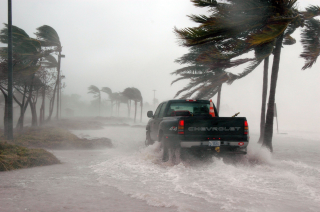In the vast expanse of Texas, where the weather can change at the drop of a hat, truck drivers and trucking companies face unique challenges when it comes to navigating adverse weather conditions.
The correlation between weather conditions and truck accidents is a well-documented concern, making it crucial for victims to understand the risks involved and the steps they can take to mitigate these risks.
In this blog post, we'll delve into the relationship between weather conditions and truck accidents, provide advice on minimizing risks, and shed light on the importance of safety measures in accordance with Texas law.
The Impact of Weather on Truck Accidents
It's no secret that adverse weather conditions can significantly increase the likelihood of truck accidents. Rain, fog, snow, and ice can all create hazardous road conditions that decrease visibility, reduce traction, and amplify the complexity of driving.
Large trucks, due to their size and weight, are particularly susceptible to these conditions. Reduced visibility and slippery roads can lead to delayed braking, difficulty maneuvering, and an overall decrease in vehicle control. These factors combine to make accidents more likely in inclement weather.
Challenges Faced by Truck Drivers in Adverse Weather Conditions
Truck drivers face a unique set of challenges when driving in bad weather. While experience and training play a role, even the most skilled drivers can find themselves in difficult situations.
- For instance, rain can lead to hydroplaning, where the truck loses traction and becomes difficult to control.
- In snowy or icy conditions, braking becomes less effective, potentially leading to skidding.
- Additionally, fog can obscure the road, making navigation a serious challenge. All of these factors require heightened alertness and careful decision-making on the part of the driver.
Preventing Weather-Related Truck Accidents: Safety Measures for Drivers
Truck drivers can take several precautions to mitigate the risks associated with adverse weather conditions:
- Reduce Speed: Slowing down in bad weather gives the driver more time to react to unexpected situations and reduces the chances of skidding.
- Maintain Safe Following Distance: Keeping a greater distance between the truck and the vehicle in front allows for increased stopping distance, crucial in slippery conditions.
- Use Headlights and Signals: Properly functioning headlights, taillights, and turn signals are essential for visibility, especially in rain, fog, or snow.
- Regular Vehicle Maintenance: Ensuring that brakes, tires, and windshield wipers are in excellent condition can prevent accidents caused by mechanical failures.
- Stay Informed: Monitoring weather forecasts and road conditions ahead of time can help drivers plan their routes and potentially avoid the worst weather.
Trucking Company Responsibilities: Ensuring Safety During Inclement Weather
Trucking companies share the responsibility of ensuring their drivers' safety during adverse weather conditions. This involves:
- Training and Education: Providing drivers with specialized training in handling different weather conditions.
- Equipping Vehicles: Installing weather-appropriate equipment, such as tire chains for snow and ice, to enhance safety.
- Communication: Establishing clear communication channels to keep drivers informed about weather updates and route changes.
- Flexible Scheduling: Allowing drivers the flexibility to delay or reschedule trips when severe weather is anticipated.
- Monitoring Performance: Regularly reviewing drivers' adherence to safety protocols and addressing any concerns promptly.
Liability and Legal Considerations in Truck Accidents Caused by Weather
In the unfortunate event of a weather-related truck accident, the question of liability can be complex. While weather conditions can contribute to accidents, it's essential to determine whether the driver or the trucking company took appropriate precautions.
Texas law emphasizes the importance of exercising caution in adverse weather, and failure to do so could result in legal consequences. In such cases, consulting a specialized
truck accident attorney with experience in Texas law is crucial to navigating the legal intricacies and protecting the rights of all parties involved.
How a Truck Accident Lawyer Can Help
Truck accidents in bad weather can be challenging, so prioritizing safety for truck drivers and companies is crucial. By understanding the weather's impact and taking proactive measures like proper maintenance and cautious driving, the risk of truck accidents can be reduced.
If you're in a truck accident, contact a truck accident attorney at Sloan Firm. Our experienced truck accident lawyers specialize in bad weather cases. Determining liability in these cases is complex. When it comes to truck accident liability, we investigate using industry experts, weather data, and records to build a strong case for fair compensation covering medical expenses, property damage, lost wages, and more.
Don’t let a truck accident get the best of you. Having a reliable truck accident lawyer like Sloan Firm ensures you're supported in seeking deserved compensation. Contact us today for a
FREE consultation!
